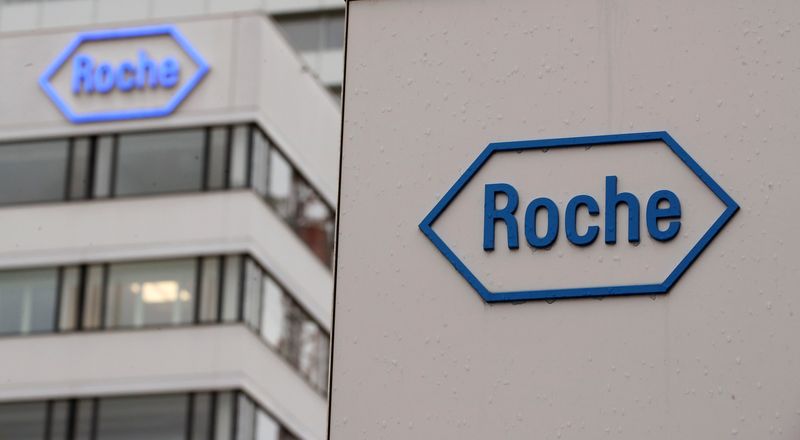By Ludwig Burger, John Revill
ZURICH/FRANKFURT (Reuters) -Switzerland's Roche has agreed to pay an initial $7.1 billion to Roivant and Pfizer (NYSE:PFE) for rights to a new inflammatory bowel disease drug, as it expands into new fields to offset falling oncology sales.
Inflammatory bowel disease is a group of chronic gastrointestinal disorders with almost 8 million people diagnosed worldwide and 80% of all individuals not experiencing lasting remission, Roche said in a statement on Monday.
Roche said that it would buy Telavant Holdings, a vehicle in which Roivant and Pfizer have placed the rights to develop, manufacture and commercialize the experimental drug known as RVT-3101 in the United States and Japan.
The Swiss drugmaker's new chief executive Thomas Schinecker is keen to restore Roche's battered drug development record after major late-stage trial setbacks in Alzheimer's and cancer immunotherapy last year.
Shares in Roche were up 0.1% at 0821 GMT after confirmation of the long-rumoured deal, which marks Schinecker's first big acquisition since taking charge in March. He had said Roche was open to big deals if they made scientific and financial sense.
Meanwhile, shares in Roivant, founded by U.S. Republican presidential contender Vivek Ramaswamy, rose 16.4% to $11.24 in U.S. premarket trading.
Roche said it had agreed to pay up to $150 million in addition to the upfront amount, contingent on certain development achievements.
Like his predecessor Severin Schwan, who is now chairman, Schinecker continues to diversify away from Roche's ageing oncology business. Cheap biotech copies will lead to an expected decline of 1.1 billion Swiss francs in 2023 sales of established medicines Herceptin, Avastin and Rituxan.
Zuercher Kantonalbank analysts said that while the asset is "not exactly cheap at first glance", it could become a best-in-class drug for inflammatory bowel disease.
Roche said it would initiate the third and last phase of testing on humans of the drug as soon as possible, after recent promising phase 2 results against ulcerative colitis."We are extremely excited about the opportunity to bring this molecule into Phase 3," the head of Roche's pharmaceutical division, Teresa Graham, told Reuters.
'TRANSFORMATIONAL POTENTIAL'
The drug, which is used to treat inflammatory bowel disease such as ulcerative colitis and Crohn's disease, belongs to a class of new treatments known as anti-TL1A antibodies which has attracted major deal activity.
Earlier this month, Sanofi (NASDAQ:SNY) purchased rights to an anti-TL1A antibody by Teva for $500 million and up to $1 billion contingent on development achievements.
Merck & Co in April agreed to buy anti-TL1A antibody developer Prometheus Biosciences for $10.8 billion.
RVT-3101 was originally developed by Pfizer, which owns a 25% stake in Telavant. Roivant holds the remaining shares under a 2022 deal with Pfizer, which retained the drug's rights outside of the United States and Japan.

Roche said the antibody might also be used to treat other diseases and it would make the therapy available to patients "as quickly as possible".
"We strongly believe this novel TL1A directed antibody has the transformational potential to make a significant difference for patients living with inflammatory bowel disease and potentially other diseases," said Schinecker.